Hack for Peace in the Middle East Day2 Presentations.
Day 1 post is here :)
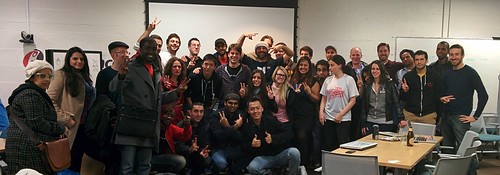
Following is a quick capture from their presentations:
Small World won the 1st prize.
Last year, Coca Cola did a campaign called "Coca Cola Small World in Print" in India and Pakistan, creating a set of posters connecting people from each country. This campaign was associated with the "Coca Cola Small World Machines" campaign, which was introduced yesterday in a speech by Stanford Peace Innovations Lab. This is what the posters looked like.


Small World team created a mobile app to enable users to do something similar. Users can shoot a photo of themselves, and match it with photo of other person who looks like you in other parts of the world. Similar to Facebook's "like" function, users can like photos with "peace" icon. Users can share their photos on Facebook, Twitter, Instagram.
You may have someone who looks like you in a country that is in a conflict, but by using this app, you can start a conversation with them.
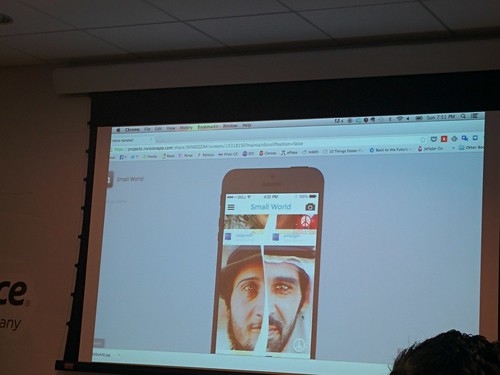
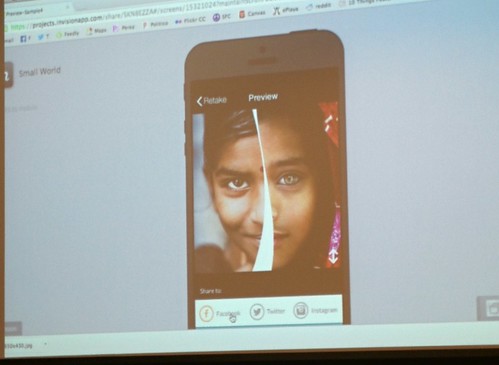
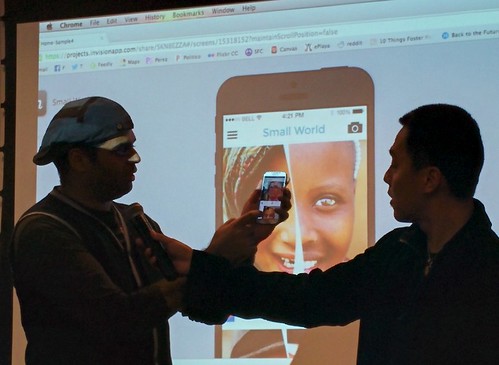
Q: Business model?
A: Advertisement, similar to Coca Cola. Might create in-app purchase with celebrity. If they get user base, acquisition will be another option.
Cityzen / Lagnazen won the 2nd place
In Egypt, there was a long oppressive regime under President Mubarak, where police brutality was a problem.
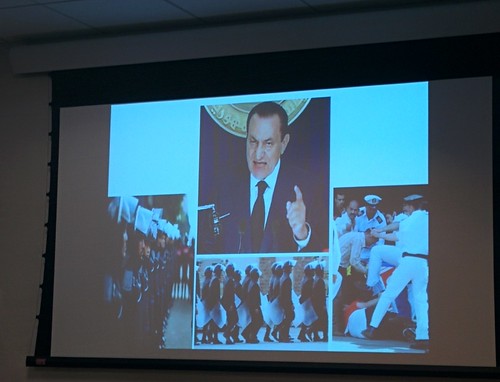
One day, this young man, Khaled Mohamed Said was arrested by the police, and according to multiple witnesses he was beaten by the police and killed.
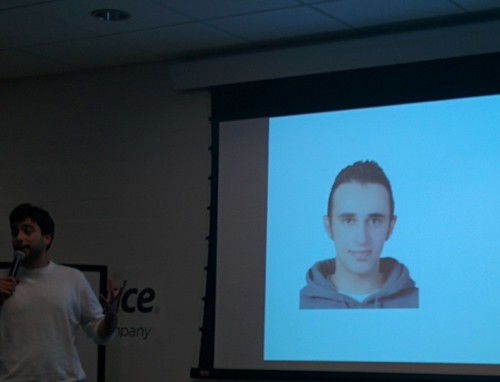
His photo of corpse was released to the Internet by his parents, and angry citizens started a Facebook page called "We are all Khaled Mohamed". All this movement led to the Egyptian revolution and Arab Spring, and you know the rest of the history.
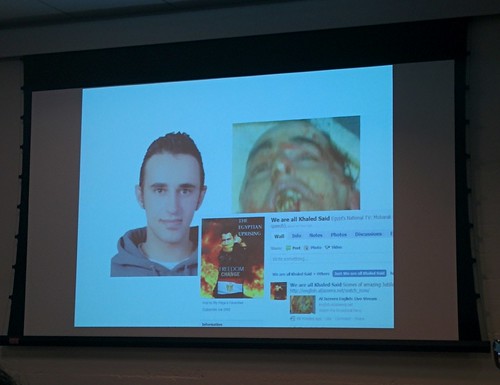
However, although the regime had changed, the police brutality in Egypt is continuing. Mediation, identification and tracking of police activity is needed.
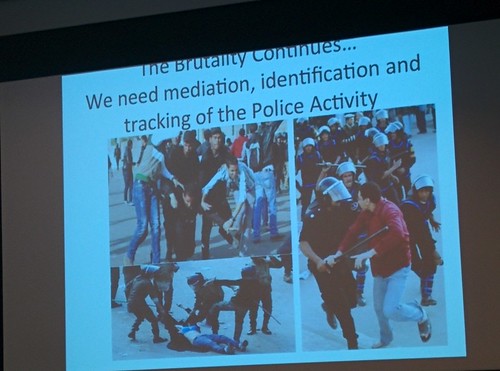
Reflecting on what worked in the past, things like Harassmap might work.

If you turn to cities like San Francisco, there are also police issues, and since more and more people will be living in "cities" globally, we need to fix those problems.
Thus, Cityzen was born.
Currently, policemen has to issue certain number of tickets and collect money. Therefore, they have strong incentive to try and arrest people.
Cityzen is an app that creates virtual currency "zen points" that police exchange with citizens, and will be exchanged for paying parking meter, doing good things, reward for community such as bringing kids, and compensate.
Communities might buy zen points, companies might buy zen points.
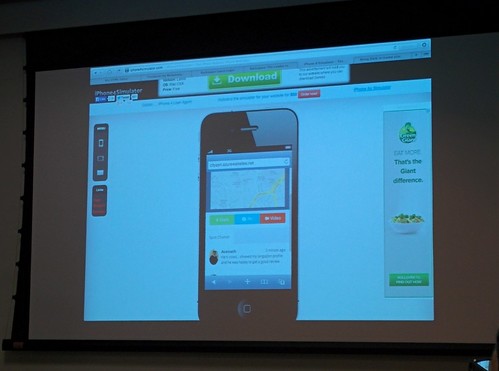
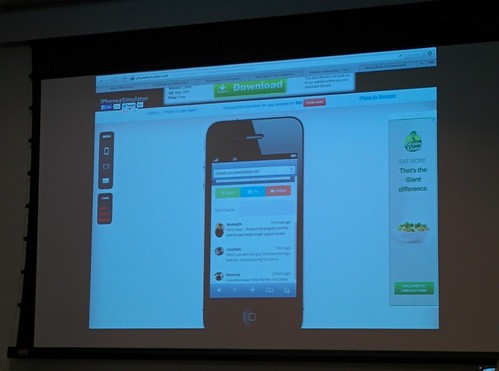
LagnaZen is the version for police checkpoints in Egypt.
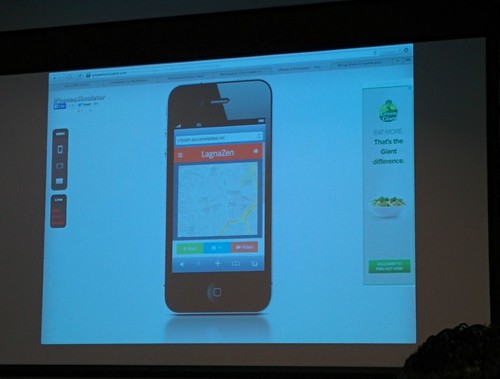
Sambosak
Website: Sambosak-app.appspot.com

Women in the Middle East are dependent on men for income, they feel insecure, and not able to be involved in decision making. Sambosak is going to empower women with a platform to transform their daily task of cooking for their family to source of income.
Presenter's mother in law is making food for 20 people in her family. Why not make for 25 and make money?
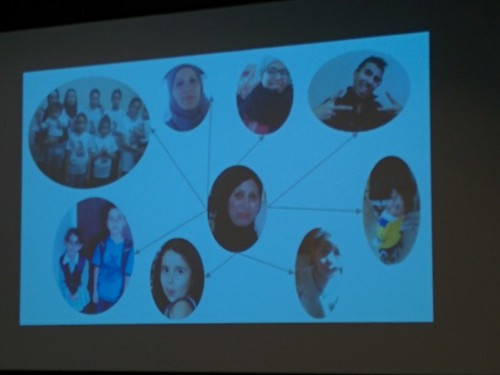
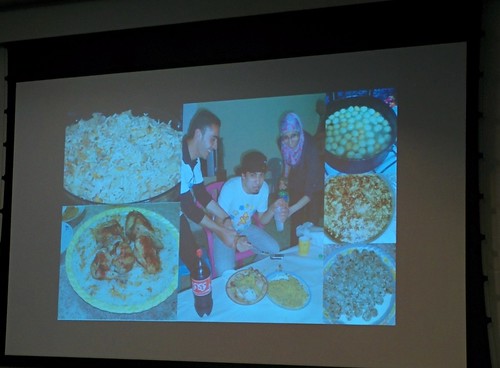
This is how the website looks:
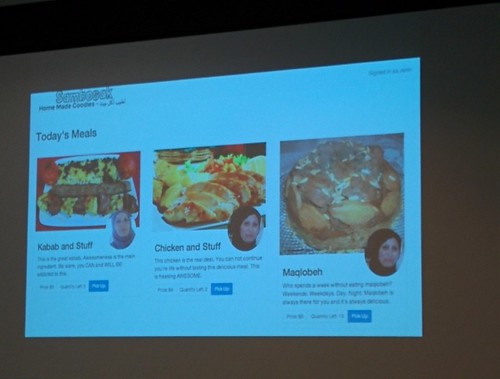
The service will also help students to get nutritious meal, since many of the students in the Middle East is eating junk food.
Future plans- rate and review, view friends who ordered the meal, request cater to event, service to tourists, food festival, etc.
Q: What if my mom's food sucks but wants to join this?
A: Will make something like AirBnB. Trust your friends' ratings.
Q: What if users start skipping the platform and ordering directly once they find good cooks?
A: Make the service easy to use.
Food Unites Us
Food Unites Us is a service to bring people closer together via food. So, this service enables users to post about food, and see people from other places (sometimes in conflicting areas) eating the same or similar cuisine.
The 2 photos can be half and half or side by side, and they can be mapped to see how far they are to each other.
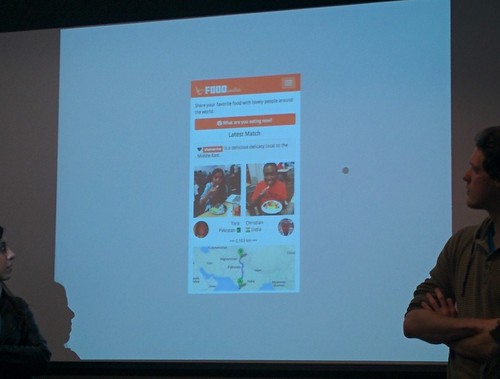
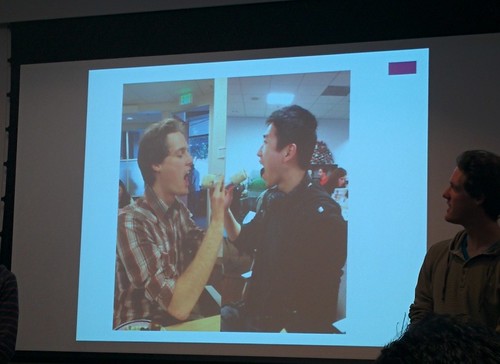
According to their survey, the biggest barrier to communication is the reason to connect- in fact 73% said they had no good reason to connect. Food Unites Us will solve that problem.
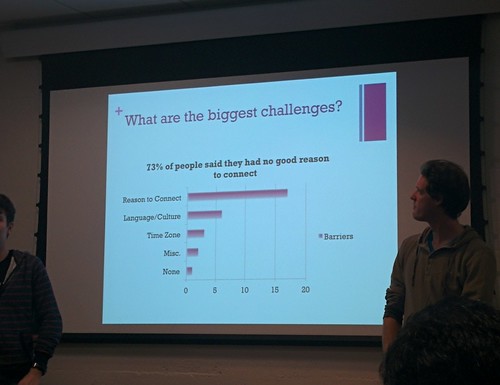
Q: Just posting photos or adding other features?
A: Focused on posting food photos, not sure about APIs outside US.
Q: Business model?
A: Sponsored logo, ads (one bottle of coke can cost a week worth of labor in the Middle East, so matching advertisers with people who drink coke)
Q: Incentive for users?
A: Fun
Timebank
There is unmet needs that some people has skills that they can provide, which is needed by somebody else. For example the presenter can do marketing but cannot code, and need somebody to code. Timebank will solve that unmet needs, by exchanging time, not money.
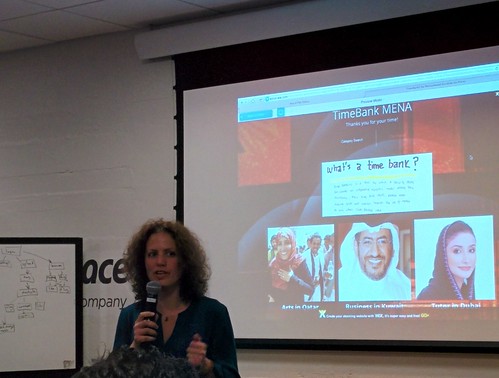
This is the interface: users can select venue, profile, reviews, what someone has to offer, etc.
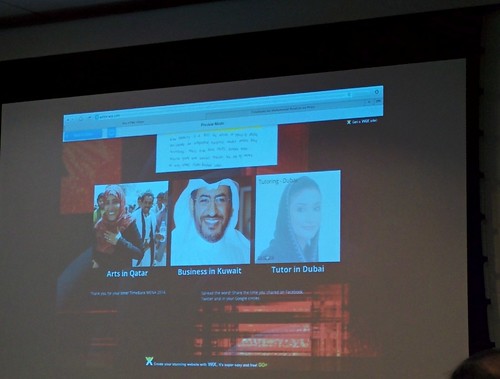
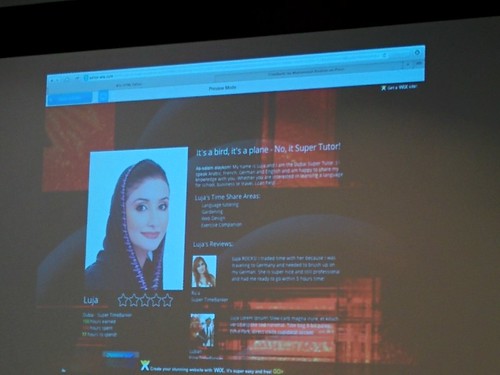
Q: Business model?
A: Apps - ad revenue, Website -sponsorship and special deals like Groupon.
Advice: Auction might make user experience difficult, and user engagement might become lower.
FreeTime
Unemployment is the #1 problem in the Middle East. 60% of the population is under 30. "Stagnant economy home to a population of disillusioned and often unemployed youth makes for a toxic combination." - The Guardian.
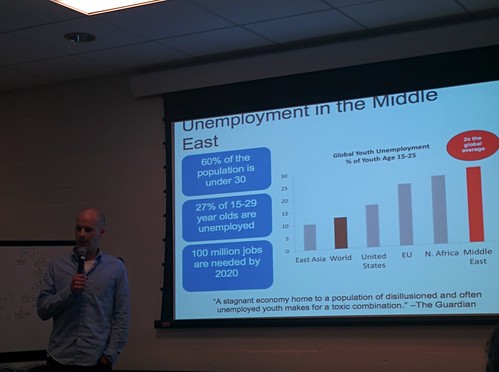
FreeTime enables doers to learn from skills of leaders, with teaching events.
Leaders sign up what their skills are, and look at what is needed, and doers can sign up for courses such as business admin lesson.
Mobile is big in the Middle East but not smartphones, so SMS is important.
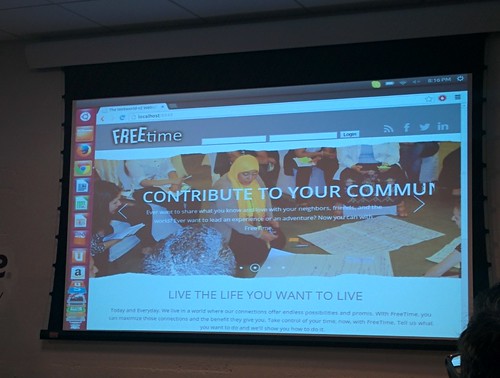
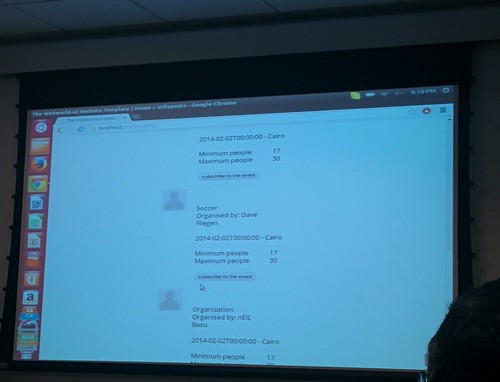
Q: Business model?
A: Ad and subscription
CrowdVid
Website: crowdvid.co
They defined themselves as iStockphoto for short videos. A service to help create affordable and exciting videos, and monetize video contents. CrowdVid takes 15% commission.
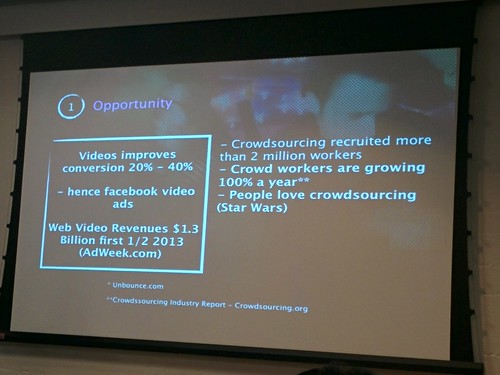
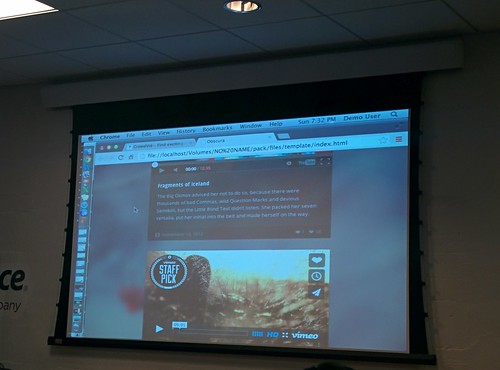
Q: How much are the customers willing to pay?
A: 1-50USD
Q: Do you have tagging? How do we make sure we get what we want?
A: Crowdsourced tagging.
Q: How do you ensure you have traffic?
A: Work with recruiting company.
Trochet
A mobile app to explain what Trochet is and idea behind it. It includes plastic bag pickup function, about us page with Diana, link to online shop, etc.
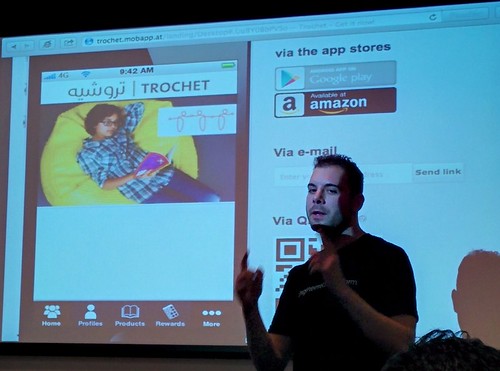
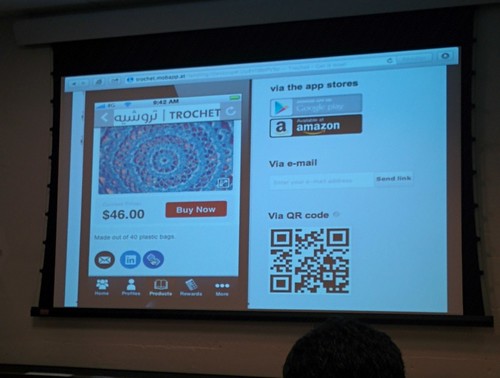
Q: How to make it viral?
A: The product itself- turning waste to product is cool, it is useful and artistic.
Some data on the Middle East
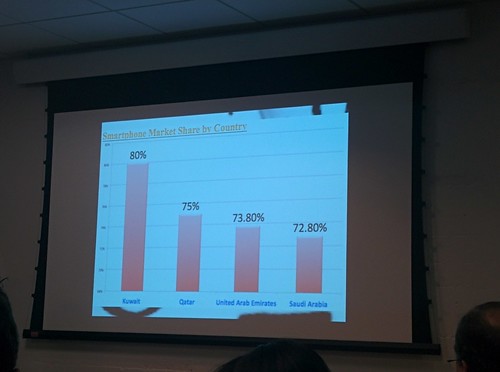
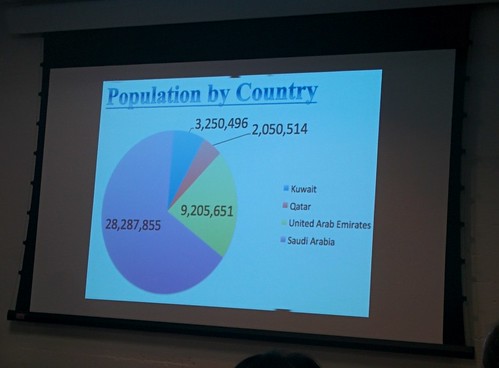

For those of you interested:
-Hack for Homeless will take place in April
(Inspiration from a service that lets users geotag where homeless was, what he/she needs- for example shoes, then someone who saw that can bring shoes to him/her)
-Homeless to hacker event happening soon
(A project to transfer homeless people to hackers)
The organizers put Super Bowl on the screen since people were so distracted ;)
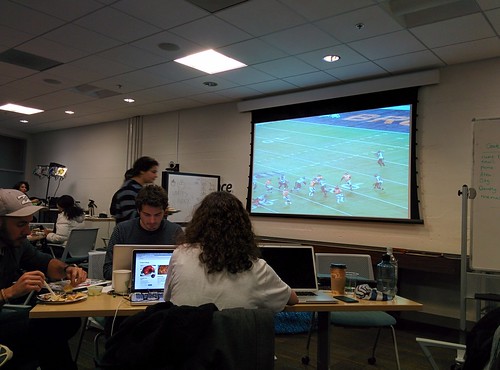
It was great to see so many people willing to give up their SuperBowl Weekend and use their technical skills to contribute to the peace in the Middle East. Thank you for organizers and staffs for making this hackathon happen!
Disclaimer: The opinions expressed here are my own, and do not reflect those of my employer. -Fumi Yamazaki
Day 1 post is here :)

Following is a quick capture from their presentations:
Small World won the 1st prize.
Last year, Coca Cola did a campaign called "Coca Cola Small World in Print" in India and Pakistan, creating a set of posters connecting people from each country. This campaign was associated with the "Coca Cola Small World Machines" campaign, which was introduced yesterday in a speech by Stanford Peace Innovations Lab. This is what the posters looked like.


Small World team created a mobile app to enable users to do something similar. Users can shoot a photo of themselves, and match it with photo of other person who looks like you in other parts of the world. Similar to Facebook's "like" function, users can like photos with "peace" icon. Users can share their photos on Facebook, Twitter, Instagram.
You may have someone who looks like you in a country that is in a conflict, but by using this app, you can start a conversation with them.



Q: Business model?
A: Advertisement, similar to Coca Cola. Might create in-app purchase with celebrity. If they get user base, acquisition will be another option.
Cityzen / Lagnazen won the 2nd place
In Egypt, there was a long oppressive regime under President Mubarak, where police brutality was a problem.

One day, this young man, Khaled Mohamed Said was arrested by the police, and according to multiple witnesses he was beaten by the police and killed.

His photo of corpse was released to the Internet by his parents, and angry citizens started a Facebook page called "We are all Khaled Mohamed". All this movement led to the Egyptian revolution and Arab Spring, and you know the rest of the history.

However, although the regime had changed, the police brutality in Egypt is continuing. Mediation, identification and tracking of police activity is needed.

Reflecting on what worked in the past, things like Harassmap might work.

If you turn to cities like San Francisco, there are also police issues, and since more and more people will be living in "cities" globally, we need to fix those problems.
Thus, Cityzen was born.
Currently, policemen has to issue certain number of tickets and collect money. Therefore, they have strong incentive to try and arrest people.
Cityzen is an app that creates virtual currency "zen points" that police exchange with citizens, and will be exchanged for paying parking meter, doing good things, reward for community such as bringing kids, and compensate.
Communities might buy zen points, companies might buy zen points.


LagnaZen is the version for police checkpoints in Egypt.

Fiskkit won the 3rd prize.
URL: http://www.fiskkit.com/
Fiskkit is a service that enables crowdsourced fact checking of media, to facilitate constructive discussion based on facts. Users can fact check the news on each sentences, and the service will analyze statistical significance of those fact check data. They said they want to "democratize the truth".
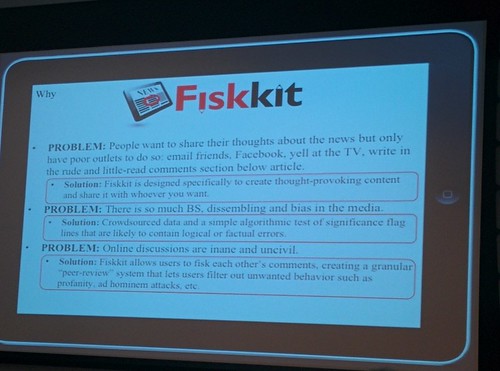
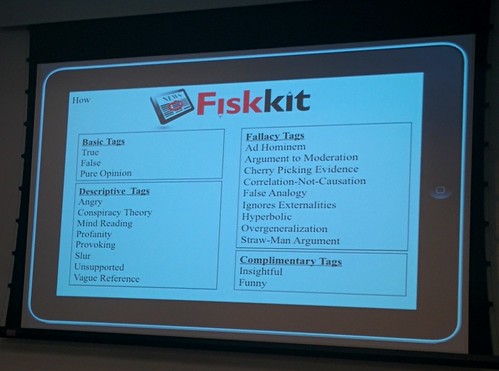
This is their web version interface. The team has been working on the web version the past couple of months, and at this hackathon they worked on mobile version.
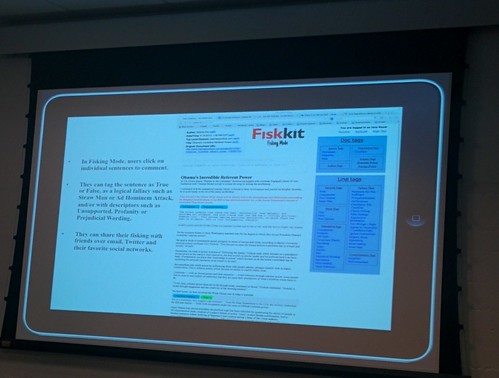
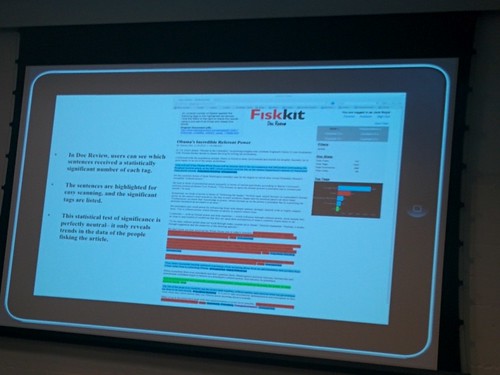
This is how it works on mobile version.
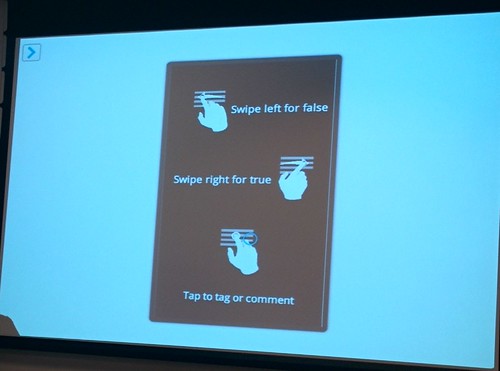
swipe left -false
swipe right - true
tap to tag or comment
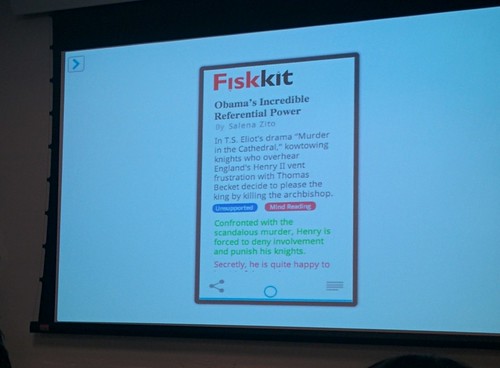
After the user input, those data goes back to the server, and statistical analysis will be made.
Q: Business model?
A: Advertisement, sell data, subscription service to activists such as ACLU, EFF, Chamber of Commerce.
Q: Arabic readers?
A: Systems is the same, need localization.
Advise: pushing back on state-owned media is not a good idea in the Middle East.
Q: Data quality?
A: Real name system. Run tests.
Q: As a writer that thinks what I write is fact- can writers push back?
A: Authors can fisk the comments.
Q: Reputation system?
A: Accumulate reputation based on tags.
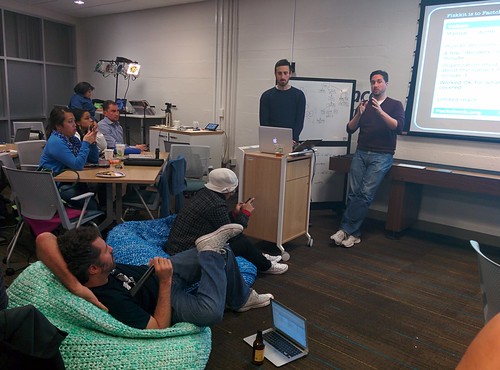
URL: http://www.fiskkit.com/
Fiskkit is a service that enables crowdsourced fact checking of media, to facilitate constructive discussion based on facts. Users can fact check the news on each sentences, and the service will analyze statistical significance of those fact check data. They said they want to "democratize the truth".


This is their web version interface. The team has been working on the web version the past couple of months, and at this hackathon they worked on mobile version.


This is how it works on mobile version.

swipe left -false
swipe right - true
tap to tag or comment

After the user input, those data goes back to the server, and statistical analysis will be made.
A: Advertisement, sell data, subscription service to activists such as ACLU, EFF, Chamber of Commerce.
Q: Arabic readers?
A: Systems is the same, need localization.
Advise: pushing back on state-owned media is not a good idea in the Middle East.
Q: Data quality?
A: Real name system. Run tests.
Q: As a writer that thinks what I write is fact- can writers push back?
A: Authors can fisk the comments.
Q: Reputation system?
A: Accumulate reputation based on tags.

Website: Sambosak-app.appspot.com

Women in the Middle East are dependent on men for income, they feel insecure, and not able to be involved in decision making. Sambosak is going to empower women with a platform to transform their daily task of cooking for their family to source of income.
Presenter's mother in law is making food for 20 people in her family. Why not make for 25 and make money?


This is how the website looks:

The service will also help students to get nutritious meal, since many of the students in the Middle East is eating junk food.
Future plans- rate and review, view friends who ordered the meal, request cater to event, service to tourists, food festival, etc.
Q: What if my mom's food sucks but wants to join this?
A: Will make something like AirBnB. Trust your friends' ratings.
Q: What if users start skipping the platform and ordering directly once they find good cooks?
A: Make the service easy to use.
Food Unites Us
Food Unites Us is a service to bring people closer together via food. So, this service enables users to post about food, and see people from other places (sometimes in conflicting areas) eating the same or similar cuisine.
The 2 photos can be half and half or side by side, and they can be mapped to see how far they are to each other.


According to their survey, the biggest barrier to communication is the reason to connect- in fact 73% said they had no good reason to connect. Food Unites Us will solve that problem.

Q: Just posting photos or adding other features?
A: Focused on posting food photos, not sure about APIs outside US.
Q: Business model?
A: Sponsored logo, ads (one bottle of coke can cost a week worth of labor in the Middle East, so matching advertisers with people who drink coke)
Q: Incentive for users?
A: Fun
Timebank
There is unmet needs that some people has skills that they can provide, which is needed by somebody else. For example the presenter can do marketing but cannot code, and need somebody to code. Timebank will solve that unmet needs, by exchanging time, not money.

This is the interface: users can select venue, profile, reviews, what someone has to offer, etc.


Q: Business model?
A: Apps - ad revenue, Website -sponsorship and special deals like Groupon.
Advice: Auction might make user experience difficult, and user engagement might become lower.
FreeTime
Unemployment is the #1 problem in the Middle East. 60% of the population is under 30. "Stagnant economy home to a population of disillusioned and often unemployed youth makes for a toxic combination." - The Guardian.

FreeTime enables doers to learn from skills of leaders, with teaching events.
Leaders sign up what their skills are, and look at what is needed, and doers can sign up for courses such as business admin lesson.
Mobile is big in the Middle East but not smartphones, so SMS is important.


Q: Business model?
A: Ad and subscription
Website: crowdvid.co
They defined themselves as iStockphoto for short videos. A service to help create affordable and exciting videos, and monetize video contents. CrowdVid takes 15% commission.


Q: How much are the customers willing to pay?
A: 1-50USD
Q: Do you have tagging? How do we make sure we get what we want?
A: Crowdsourced tagging.
Q: How do you ensure you have traffic?
A: Work with recruiting company.
Trochet
A mobile app to explain what Trochet is and idea behind it. It includes plastic bag pickup function, about us page with Diana, link to online shop, etc.


A: The product itself- turning waste to product is cool, it is useful and artistic.
Some data on the Middle East



For those of you interested:
-Hack for Homeless will take place in April
(Inspiration from a service that lets users geotag where homeless was, what he/she needs- for example shoes, then someone who saw that can bring shoes to him/her)
-Homeless to hacker event happening soon
(A project to transfer homeless people to hackers)
The organizers put Super Bowl on the screen since people were so distracted ;)

It was great to see so many people willing to give up their SuperBowl Weekend and use their technical skills to contribute to the peace in the Middle East. Thank you for organizers and staffs for making this hackathon happen!
Disclaimer: The opinions expressed here are my own, and do not reflect those of my employer. -Fumi Yamazaki
0 件のコメント:
コメントを投稿